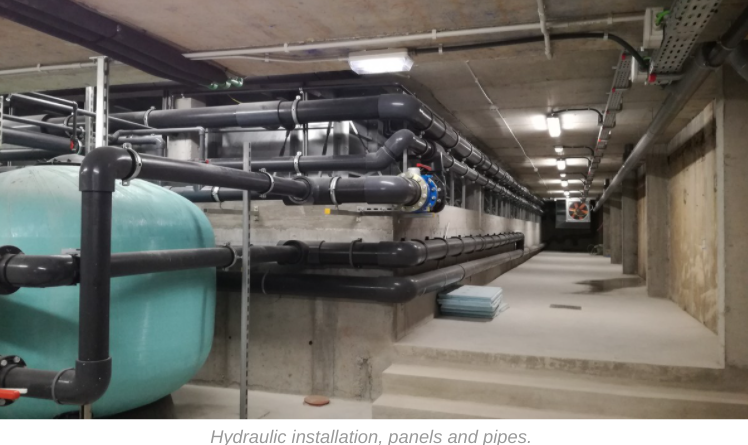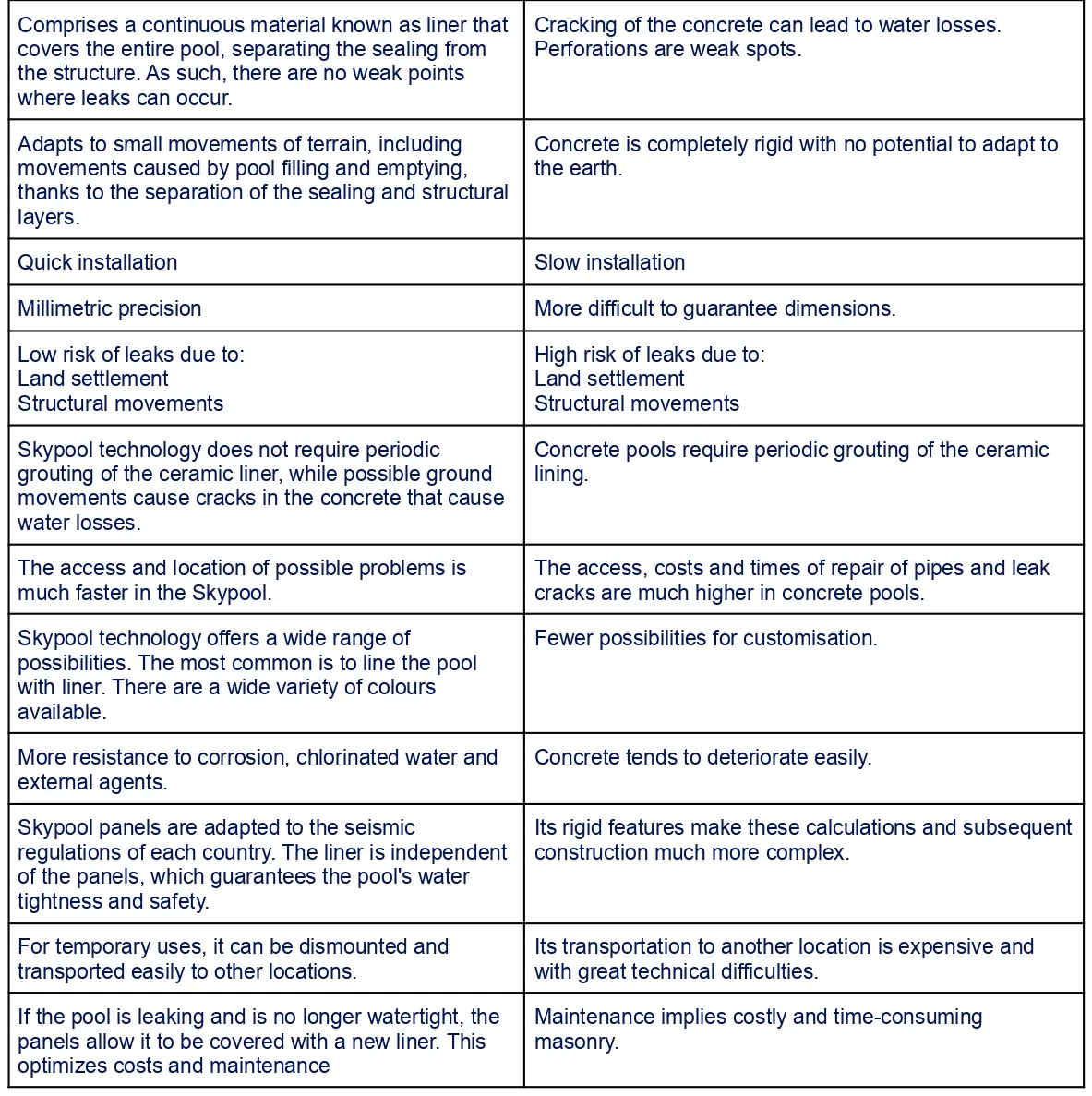Avoiding swimming pool leaks is a major concern for commercial pool operators. Every pool experiences a certain amount of water loss; under normal conditions, this will be between 2 or 2.5 cm per week. This is due to evaporation, water kicked up by the wind, filter washing, overflow capacity, splash, and even water captured in swimsuits. If your pool is experiencing water loss of approximately these levels, there’s no need to worry.
However, if the pool’s water level falls more than 2.5 cm, it’s a clear indication that there is a leak. This can incur serious expenses. Not only will it cause the water bill to rise, it will also result in higher costs for chemical products or salt, and additional energy consumption to heat the water. So the question is: how do swimming pool leaks happen, how can they be repaired, and how can swimming pool operators take preventive measures?
Dive deeper with the eBook
How do swimming pool leaks happen?
Swimming pool leaks occur due to four key issues:
- Excessive evaporation: This occurs due to the water’s continuous contact with the sun and wind. A thermal pool cover can minimise this effect.
- Cleaning system and filter problems: Poor functioning systems can lead to excess water loss.
- Cracks or fissures: Due to the passage of time and the movements caused by pressure from the water and external earth, cracks can form in the structure of the pool basin. There may also be structural leaks in the piping pool circuit, which are difficult to locate and repair. These can grow and deform the pool surface, causing a complex structural problem.
- Hydraulic damage: This is perhaps the most common cause of swimming pool leaks. This damage is produced during pool filtration, pumping, filling, and emptying the pool circuits. Leakage in the pipes could be a result of root damage, ground settlement or simply a defective piece of PVC or installation, as it is easier for pipes to break in a concrete vessel.
How to repair leaks
Once the leak is located, you should choose the most appropriate course of action. In the case of hydraulic damage, you need to pressure test the pipework, section by section, using either pressurised air or an electrical impulse system, among other options. With the leak pinpointed, it will be enough to open the relevant area and repair the cracked pipe. It is important to carry out a second pressure test before covering the hole again.
If the leak is in the filtration pump connections, buying new connectors is sufficient. If it’s in the nozzles, you can tighten or replace them if the part is cracked. However, the most complex fault is a leak in the PVC pipes between the pool and filtration system. Buried pipes are difficult to access; if the leak is small, there are special products you can use to seal the leak. However, if the leak is large, you will inevitably have to dig a trench or open the outside of the pool.
If there is a crack in the structure of the pool it can be repaired with special sealants or by installing a pool liner. For example, a PVC coating will create a perfect waterproof layer and absorb movements from the ground.
Preventative measures
The preferable scenario is, of course, not experiencing swimming pool leaks in the first place. In the stages prior to the design of an installation or space such as a swimming pool, it is decided where it should be, what it should look like, the overall weight, and what materials the installation should be composed of. These decisions are key to preventing leaks.
There are two key options: a traditional concrete pool or a panel system such as SkyPool. Conventional concrete pools are built by emptying several kilos of earth from the ground and pouring concrete into the formwork, or shotcrete, which is applied under pressure but involves a meticulous construction process to avoid leaks.
A SkyPool, on the other hand, is comparatively easy to install. As part of the AstralPool range of modular pools, they are supplied in panels. This provides an easy anchoring and assembly system, finished with a hot-dipped zinc bath that creates galvanised steel panels. This ensures durability and safety, and a perfectly watertight pool with optimised costs and maintenance. For this reason, choosing a system that prevents cracks such as the Skypool panel construction system is a guarantee compared to other materials such as concrete. On the other hand, the access and location of possible leaks in the pool vessel, piping system and technical room is much more agile and efficient with this panel system, since there is direct access to the entire contour of the pool.

Naturally, also carrying out checks on the structure of the pool, its hydraulic systems, equipment and performing regular maintenance are also important preventive measures to avoid possible water leaks.
Below is a table clearly illustrating the benefits of a SkyPool versus a traditional poured concrete model when it comes to mitigating swimming pool leaks:
SkyPool vs. concrete

SkyPool: The best choice for a leak-free pool
Via the use of complete prefabricated components, together with the easy assembly system, the SkyPool system considerably reduces the time required to build a pool. This system can be used for any design or shape, thanks to the lightweight structure that is easily adaptable to areas that would otherwise present an engineering challenge (small spaces, rooftops, stadiums, etc.).
The galvanized steel panels materials provide great resistance and thus reduces maintenance costs, namely, the potential for swimming pool leaks. The metal structure comes with a 25-year warranty. The use of premium components, together with a totally safe construction system, delivers unparalleled reliability.
Plus, all components can be recycled, are non-contaminating and are manufactured using processes with a low environmental impact. This makes SkyPool the standout option not only for its durability and economic efficiency, but also for the environment – caring for your pocket and the planet.
